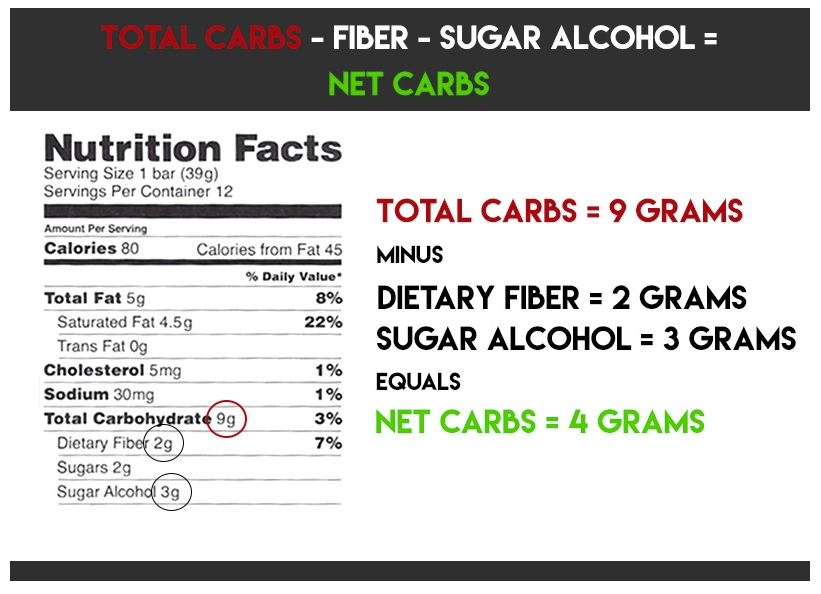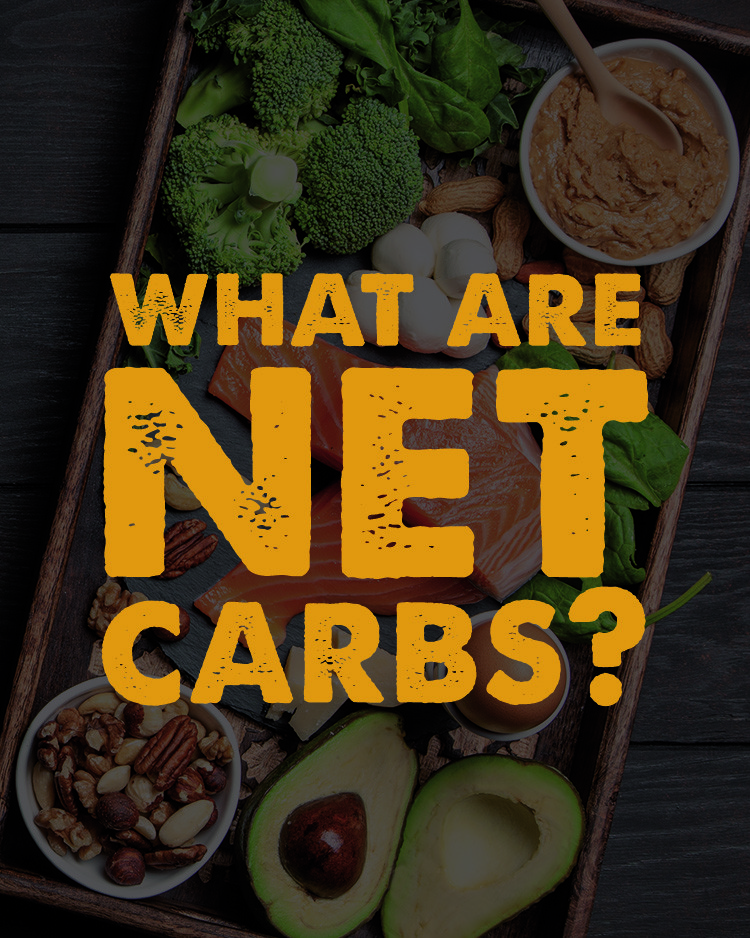The keto diet is centered around lowering your carb intake while increasing the amount of healthy fat you eat. To do this effectively, you need to track your carbs–but which ones do you count? Not all carbs are created equal, and understanding the difference between them is going to allow you to accurately track your macros and keep you on track for weight loss.
What Carbs Are
Carbohydrates are one of the three main macros (the other two are protein and fat). These are primarily found in grains, fruits, and vegetables, as well as being the most common ingredient in highly-processed foods. Historically, fat and protein have played a far more substantial role in our diets, but over the last thirty years, carbs have been pushed by various government agencies as the macro of choice that should make up the most substantial part of your diet. Not surprisingly, over that same period, rates of people who are overweight, obese, or have diabetes have skyrocketed.
Your body converts most carbs into glucose, which is a sugar your body uses for fuel when you're in glycolysis (essentially the opposite of ketosis). When your pancreas detects higher levels of blood sugar, it produces insulin, which is primarily used to drive glucose into each cell so that the energy is accessible. The more carbs you eat, the more insulin your body produces. If you eat too many carbs for a sustained period, your body will get used to high levels of insulin and become less sensitive to it. The pancreas has to produce more and more to achieve the same effect, and this is the primary driving factor behind the development of Type 2 diabetes.
If you eat more than your body needs at the moment, it's turned from glucose to glycogen and stored in your liver and muscles to be used later. The body can only store so much glycogen, however, and anything beyond that is stored as fat. Insulin plays a secondary role here and is often referred to as the “fat-storage hormone” because it plays a central role in converting glucose and glycogen into fat.
One of the reasons keto has been so effective in reversing Type 2 diabetes is that, unlike glucose, ketones don't require insulin to get into cells. The longer you're on the keto diet, the longer the break you're giving your pancreas and digestive system. The insulin insensitivity that was present before slowly begins to reverse itself. Several studies have confirmed that when Type 2 diabetics are on keto for long enough, the majority of them can effectively eliminate diabetes, and nearly all are able to reduce their medication levels.
The Difference Between Total & Net Carbs
You can divide carbs into two groups: total and net. The first category includes every type of carb: simple, complex, fiber, sugar alcohol, sucrose, fructose… literally everything. This isn't what you want to track, though, because your body looks at carbs in a couple of different ways, and these are based on how your digestive system handles them. Fiber and sugar alcohols (such as erythritol, sorbitol, maltitol, and xylitol), for example, are non-digestible and pass through your GI tract largely intact. This means they aren't turned into glucose and have no impact on your blood sugar, so you don't have to count them toward your carb macro limit for the day. In fact, you need lots of fiber in your diet, so eating lots of broccoli, cauliflower, and cabbage is good for you.
The term “net carbs” means you subtract all of the non-digestible carbs and leave the ones that actually impact your blood sugar. This number is what you count toward your daily carbs macro limit, and it's good news for several reasons.

First, one relatively common side effect of keto is constipation. Glucose and glycogen store a lot of water weight; when you first start keto, that's going to exit the body and can leave you dehydrated. At the same time, you're substantially increasing your fat intake. When you put both of these together, they can lead to constipation. Vegetables that are high in fiber are also usually high in water content (e.g., broccoli is 90 percent water, while cauliflower and cabbage both come in at 92 percent).
The second good thing is that sugar alcohols don't count, which means you can eat desserts! We recently wrote an entire “Keto Desserts For Dummies” book that highlights the importance of eating sweet treats, as well as including chapter after chapter of tasty recipes. We always encourage people to approach the keto diet in a sustainable way, as if you were going to be on it for at least a year. Few people stay on it that long, but if you approach it with that mindset, you're going to develop sustainable habits that will keep you from crash dieting. One of the things you should do regularly is to eat keto-friendly desserts; the psychological motivation you get from that will help you keep your forward momentum up.
How to Track Them
Now that you know what to track, the next issue is figuring out how best to track them. The first thing you should do is plan your meals, snacks, and desserts: even if you deviate from that, you've still got a starting point and know how much room you have. You'll also begin to get a better idea of how much food X number of grams of fat, carbs, or protein is, which will help you sharpen your estimation skills for when you have to eat food you didn't plan for.
Most people carry their smartphones with them throughout the day, so having an app that tracks all of this for you is an excellent idea. We've designed the Total Keto Diet app from the ground up to be exactly that its name suggests: the one app you need to help you get through your total keto diet experience. You can track your meals, snacks, and water intake either manually or import your macros automatically from your recipes. Download the app for free and keep your net carbs on track!
NUTRITIONAL DISCLAIMER
The content on this website should not be taken as medical advice and you should ALWAYS consult with your doctor before starting any diet or exercise program. We provide nutritional data for our recipes as a courtesy to our readers. We use Total Keto Diet app software to calculate the nutrition and we remove fiber and sugar alcohols, like erythritol, from the total carbohydrate count to get to the net carb count, as they do not affect your blood glucose levels. You should independently calculate nutritional information on your own and not rely on our data. The website or content herein is not intended to cure, prevent, diagnose or treat any disease. This website shall not be liable for adverse reactions or any other outcome resulting from the use of recipes or recommendations on the Website or actions you take as a result. Any action you take is strictly at your own risk.
- What Are Net Carbs? - April 29, 2020
- The Most Comprehensive Keto Alcohol Guide - April 28, 2020
- How to Measure Body Fat Percentage - April 26, 2020


































